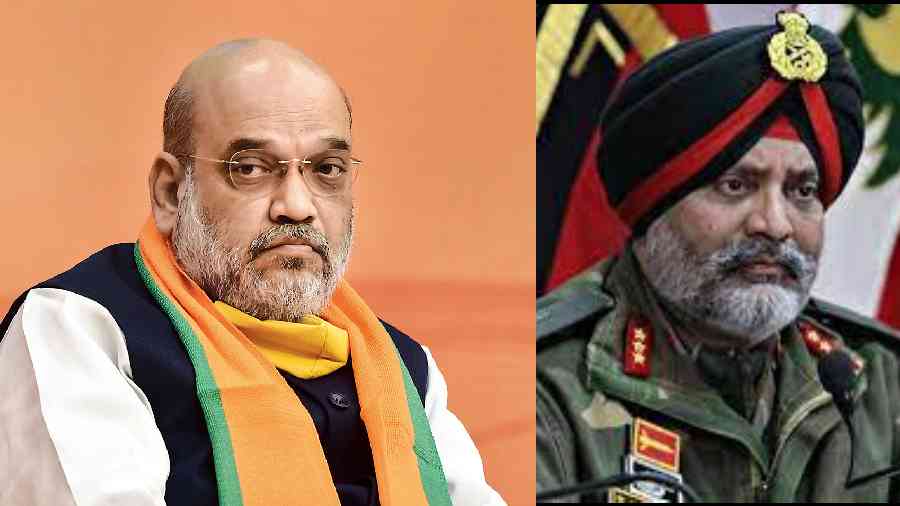Union Home Minister Amit Shah's visit to Srinagar on June 26 in 2019 was to give the final touch to the government's resolve for carrying out the abrogation of Article 370 in Jammu and Kashmir, Lt General (retired) K J S Dhillon has claimed in his yet-to-be-released book.
'Kitne Ghazi Aaye Kitne Ghazi Gaye', authored by Dhillon, will be released on February 14 as a mark of respect to the 40 Central Reserve Police Force personnel who were killed in a suicide car bomb attack in 2019 near Lethpora in South Kashmir.
Amit Shah's visit on June 26, 2019, was already touted to be a precursor for a dramatic announcement and "I got a call at 2 am in the morning, informing me of a meeting with the home minister at 7 am", Dhillon said in his book.
Without divulging much about his meeting with the home minister, the retired Lt General, who was the head of the army's strategic Srinagar-based XV Corps, wrote that "a lot of sensitive issues and key points were on the table for discussion apart from delectable food that include 'aloo paratha and famous Gujarati dish 'dhokla' during our tete-e-tete".
The discussions included understanding the reaction of Pakistan to the "path breaking declaration" that was now certain to be followed, he said.
"I must point out, and with absolute objectivity and great professional input, that the home minister was in absolute control and fully conversant with the agenda and... he had obviously done extensive research and homework," the retired Lt General said.
At the conclusion of the meeting, "I was asked about my frank and personal view, (and) my immediate response was 'agar itihaas likhna hai, toh kisi ko itihas banana padega' (we can write history only if we make history)", Dhillon said in the book.
This was the last meeting in Srinagar before the government on August 5, 2019, announced the abrogation of Article 370, which granted special status to the erstwhile state of Jammu and Kashmir, and its bifurcation into union territories of Jammu and Kashmir and Ladakh.
The retired Lt General said authorities had to shut internet because of lies being propagated from across the border, besides ensuring that there was no loss of life and property.
"At the end of this, I would say this with all my pride that the objective was achieved," Dhillon, who was heading the local army command in Kashmir when the decision was taken, wrote in the book.
Except for the headline, this story has not been edited by The Telegraph Online staff and has been published from a syndicated feed.











